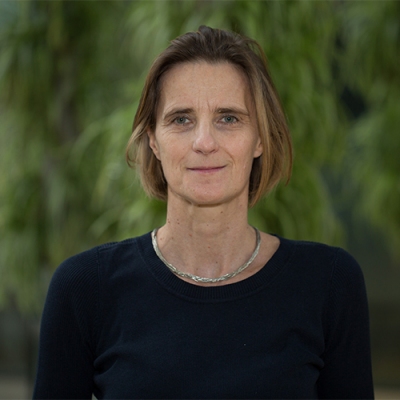
Prof. Daphné Bavelier
Professor
Directory details
E-mail
Website
Institution : University of Geneva
Department : Department of Psychology
General Information
Daphne Bavelier studies how the brain adapts to changes in experience, either by nature - for example, deafness, or by training - for example, playing video games. Her work shows that playing fast-paced, action-packed entertainment video games typically thought to be mind-numbing actually benefits several aspects of behavior. Exploiting this counterintuitive finding, her lab now investigates how new media, such as video games, can be leveraged to foster learning and brain plasticity.
Recently, in collaboration with members of the CISA, she is investigating the impact of video games on social and affective skills, in particular emotion processing and emotion regulation.
Note
Initially trained in Biology at the Ecole Normale Superieure de Paris, Professor Bavelier then received a PhD in Brain and Cognitive Sciences from Massachusetts Institute of Technology (Boston) and trained in human brain plasticity at the Salk Institute, San Diego.
She joined the faculty at Georgetown University in the Neurology department, before moving in 1999, to the Brain and Cognitive Sciences Department at the University of Rochester, where she still holds a part-time position. In 2011, she was named Professeur Ordinaire in the faculty of Psychology at the University of Geneva, Switzerland.
Over the years, Dr Bavelier has authored more than 100 scientific papers, received various awards including the John Merck Scholar Awards, a 21st Century Award Research Grant by The James S. McDonnell Foundation, and been selected as a finalist in the Blavatnik Awards for Young Scientists. For several years, she headed a multi-million dollars Mutlidisciplinary Research Initiative (MURI) sponsored by the Office of Naval Research on complex learning and skill transfer with video games. As part of her interest on how to leverage the power of new media for health and education, she co-organized a meeting on 'Interactive Media, Attention and Well-being' hosted by the White House Office of Science and Technology Policy and sponsored by the National Science Foundation (LINK TO THE PAPER WITH RICHIE HERE) .
Current Research
Please visit the lab website www.unige.ch/fapse/people/bavelier
